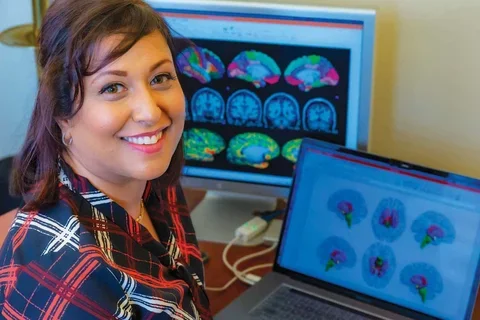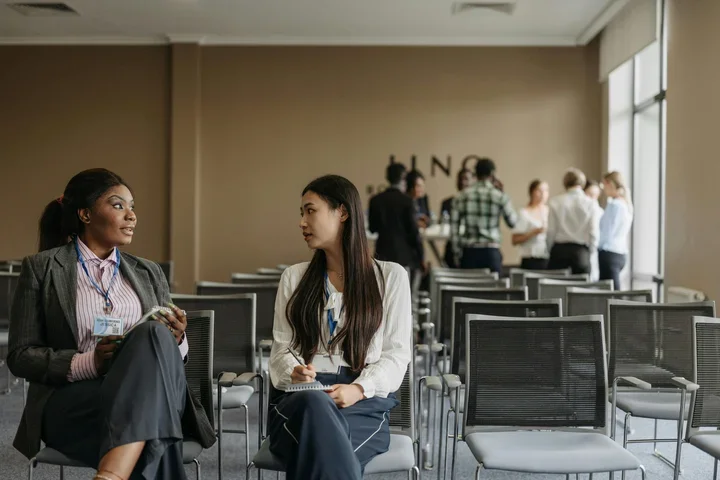Physical activity appears to prompt the microbiome to inhibit appetite in people with high body mass index (BMI)
Learn more about the new study recently published in Nature

A new Nature study from Arpana Gupta, PhD, co-director of the Goodman-Luskin Microbiome Center at UCLA, and colleagues at UCLA, Massachusetts General Health and Keck School of Medicine at USC, explored whether physical activity can result in psychological benefits through the brain-gut microbiome (BGM) system in a population with high BMI. The study reports that higher physical activity was significantly associated with increased connectivity in inhibitory appetite control brain regions, while lower physical activity was associated with increased emotional regulation network connections. Higher physical activity was also associated with microbiome and metabolite signatures protective towards mental health and metabolic derangements. The greater resilience and coping and the lower levels of food addiction seen with higher physical activity may be explained by BGM system differences.
UCLA CTSI provided support for the study through Dr. Gupta's CTSI/CURE Pilot and Feasibility (P&F) Study award. "CTSI funding made available by the P&F grant mechanism was vital to allow me the possibility to process my microbiome samples needed for the proposed project," said Gupta. "This aided in elevating the research questions proposed with attention to possible microbiome-directed therapeutic interventions for the future."
Looking ahead to the future, Dr. Gupta also shared her goals for expanding her research on the brain-gut microbiome: "The goal is to continue to look at brain-gut microbiome targeted interventions for various disorders and for dealing with stress in general. My belief is that these types of interventions can be geared towards treatments but also at preventions across multiple disorders and domains. The advantage of these types of interventions is that they are accessible and easy to implement, making this very exciting for the future of medicine and health in general."
Click here to learn more about the Gupta Lab, including her team which includes co-author Dr. Tien Dong, who previously received a 2020 CTSI Voucher Award.
This story was adapted from the June edition of UCLA Health's Lab Notes.
Image source: Gupta Lab, UCLA Health



